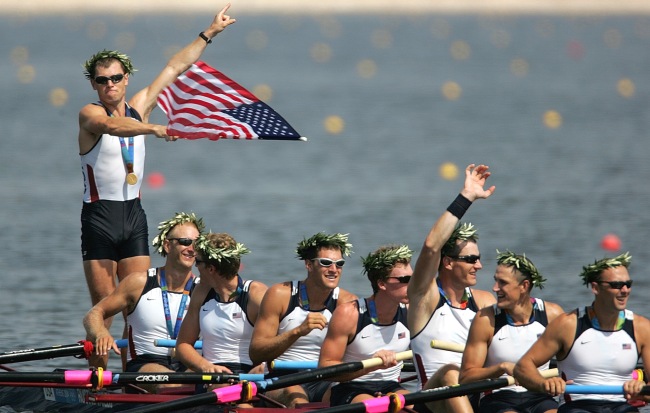This year marked the 12th anniversary of September 11th. While many of us can remember exactly what we were doing when the attacks occurred, very few were at the scene. Jason Read, 2004 Olympic Gold medalist and 13-time recollection of the event:
“Rowing has demonstrated to me the primacy of teamwork, tenacity, sacrifice, and equipped me with the requisite skills to lead under duress while working as a rescue chief after the 9/11 terrorist attacks. Working at Ground Zero as a firefighter was a life-changing and penetratingly sad experience. The level of destruction in Lower Manhattan was cataclysmic. Despite this, a positive, resilient spirit pervaded in the rubble among countless rescue workers from across the country who worked feverishly as a team to search for survivors in an incredibly risky and toxic environment. When I returned home after working the better part of the first week and began to row again with my pair partner Bryan (Volpenhein) in Princeton, I experienced a fundamental change in my approach to rowing: instead of training to beat people, the focus transitioned to wanting to be the best for our country at the Olympics. In hindsight this transition is easy to understand based on the totality of events – the greatest loss of civilian life since the Battle of 1812 when the British burned Washington in 1814 – though it surprised me then.
Notably, while at Ground Zero the American flag was a unifying if not steadfast guide post for exhausted rescuers covered in dust. It was the most significant landmark and served as an important point of orientation while working in a pulverized city environment that all looked the same.
While training and competing at the World Championships, I spent many hours envisioning our team raising the flag in Athens. The same flag that helped me and my colleagues at Ground Zero. As we watched the American flag raised in Marathonas, Greece, vivid memories of working at Ground Zero came flooding back. At that moment a commensurate amount of tears flowed, too. Thankfully, if not retrospectively awkward, Wyatt (Allen) held my hand the entire time (note: Ed Hewitt pointed out later that we were the only ones holding hands virtually the entire time on the podium!).
12 years on, I can still vividly recall the acrid smell in the air; the trips to the temporary morgues setup outside the WFC with bodies of innocent men and women who were murdered on that beautiful Tuesday morning; death and destruction were ubiquitous in lower Manhattan; the endless smoldering fires…and dreading making a phone call to then-Olympic Coach Mike Teti, to request (hold your breath), if it would be ok to miss a few practices because I wanted to stay and assist the FDNY for a few more days. Thankfully, Mike not only granted a usually very difficult (read: impossible) pass, he said, “don’t come home until you find all your [firefighter] brothers. Stay safe.”
How different our perspectives are as rowers with respect to practice and the fear of missing just a few workouts over the course of a few thousand organized workouts in an Olympic cycle. Time and space have helped heal the seared memories and made me realize as a rower and as a coach that sometimes there are greater events external to the boathouse. Rowing, and my teammates have undoubtedly helped in that healing process.”

Thank you J.R. for your service and dedication.